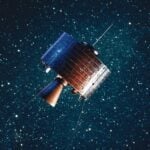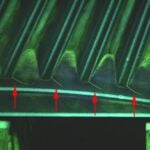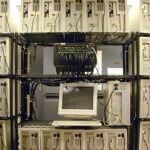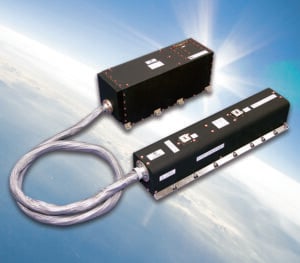Traveling-Wave Tube Amplifier
Inducted In: 2020, Communications Technology, Computer Technology, Featured
First developed in the 1930s, Traveling-Wave Tube Amplifiers (TWTAs) were designed to amplify radio frequency signals. It was in the early 1960s that NASA and L3 teamed up to evolve the technology so it would meet the transmission needs of space missions. The first TWTA flew on a satellite in 1962, and they have been a part of every science spacecraft NASA has launched since 1972.
L3 is the only provider of space certified TWTAs in the United States, and they have been continually working with NASA to improve their performance over the past 50 years. These improvements have led to increased transmission speeds and power capabilities, which are crucial to the success of NASA’s ongoing space exploration missions.
Today, commercial companies also use the ever-expanding capabilities of TWTAs to offer more benefits to consumers, which has led to improvements in mobile voice and data services, as well as broadband internet service.
Join us for the 2020 Space Technology Hall of Fame Induction Ceremony here.
Related Technologies

Syncom – Geostationary Satellite Communications
Inducted In: Communications Technology
In 1961, NASA awarded a $4 million contract to the Hughes Aircraft Company to design and build the first geostationary satellites. The three satellites, known as Syncom 1, 2, and 3, were individually launched in 1963 and early 1964,…

NASGRO
Inducted In: Computer Technology
NASGRO is a software analysis tool that was originally developed by NASA over forty years ago. In 2000, NASA entered into a Space Act Agreement with the Southwest Research Institute (SwRI) with the goal of turning the system into…

Beowulf Computing Cluster
Inducted In: Communications Technology, Computer Technology, Featured, Industrial Productivity/Manufacturing Technology
A Beowulf Computing Cluster is a grouping of off-the-shelf computer hardware networked together with fast communication software. The resulting parallel processing power of the collection generates processing speeds faster than most super-computer systems used for complex processing – at a…

